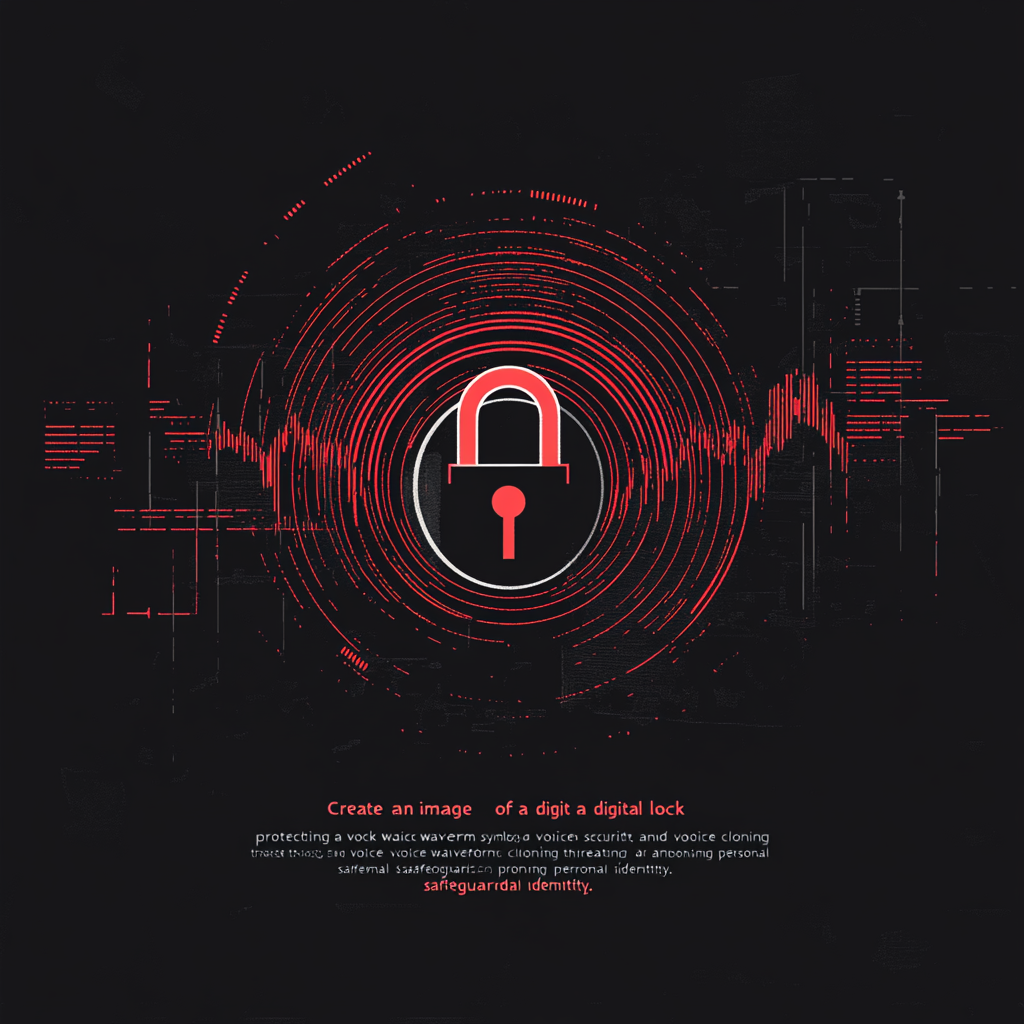
“Safeguarding Voices: Mitigating the Threats of Voice Cloning”
Voice Cloning: The Good, The Bad, and The Seriously Ugly
Ladies and gentlemen, gather 'round as we embark on a journey into the uncanny world of voice cloning. In this age of artificial intelligence, where technology struts about like it's the star of the show, voice cloning emerges as both a wizard and a wicked sorcerer. It has the power to revolutionize communication and yet, lurking beneath its shiny surface are potential pitfalls that could give anyone a reason to shiver. Let’s dig into the exhilarating highs and petrifying lows of this remarkable, yet concerning, technology.
So, what in the name of all that is digital is voice cloning? Imagine you’re at a karaoke night gone wild, and instead of belting out your own tunes, you reach for an app that can recreate the voice of Beyoncé or even your dear grandma. Voice cloning, also known as voice synthesis, allows machines to replicate human voices almost flawlessly. The technique demands only a tiny sample of a person’s voice – we’re talking a mere snatch of conversation, just a few seconds long – and voilà! The algorithms take it away, mimicking speech patterns, intonations, and the nuances that make up each unique vocal fingerprint. Scary stuff, right?
Now, hold your horses! It’s not all doom and gloom. Let’s first tackle the good stuff, the bright side of this vocal wizardry. On one hand, voice cloning can help preserve the voices of those with degenerative conditions. You see, many people face ailments that chip away at their ability to speak, but with a voice clone, they can engage in heartfelt conversations, keeping their essence alive.
Next up, speech therapy! Yes, voice cloning could serve up a buffet of vocal models for individuals struggling with their speech. Picture a young kid learning to pronounce their ‘r’s correctly; with a voice clone serving as a shining example, practice becomes a whole lot more fun and accessible.
And who could forget about vocal assistants? In a world where AI is increasingly your personal assistant, a familiar voice can do wonders for user experience. Chatbots might just sound as smooth as James Earl Jones narrating the history of… well, anything. Information flows so much better with a friendly tone.
Now that we’ve savored those tasty delights, let’s bite into the toxic fruit of voice cloning – the bad and the nasty. Strapping in? Here we go!
First on the terrifying list is identity theft and fraud. Imagine this scenario: You receive a call from what sounds like your best friend, pleading for help. They’ve hit a rough patch and need funds ASAP! Only it’s not your friend at all – it’s a scammer wielding a voice clone. The wreckage left behind can be severe, from financial loss to emotional turmoil. This isn’t just movie material; it's happening to real folks every day.
Now, let’s sprinkle in a dash of social engineering. Voice cloning is a powerful weapon for tricksters campaigning against your privacy. Your family, friends, or colleagues could be duped into sharing sensitive information based solely on the persuasive mimicry of a voice they trust. It's an eerie mind game that can lead to devastating outcomes.
And the rabbit hole goes deeper still! The legal and ethical dilemmas pose another layer of intrigue. Using someone else’s voice without permission spirals into the realm of privacy violations, intellectual property disputes, and violations of consent. It's a moral quandary that has experts scratching their heads and legal teams scrambling for answers.
You might be thinking, “Is this still getting uglier?” Oh, absolutely! Grab your popcorn because here comes the ugly. Let’s get grim.
One of the most unsettling applications of voice cloning? Scaring the pants off parents with fake distress calls claiming their children are in danger. The emotional toll of such scams is horrifying, leaving families terrified and vulnerable to extortion. It’s like living in a horror movie, but without any popcorn to offer comfort.
Then there's the impersonation of public figures. Imagine a voice-cloned “press conference” from a supposed government official leading to chaos, misinformation, or even worse – provoking international incidents. The implications can be broader than one might initially consider, and we are left wondering what it would take to rein in such malicious exploits.
Ah! As we edge towards the light at the end of this dark tunnel, let’s shift gears to prevention. How does one ensure they don’t become another statistic in the voice cloning tapestry? Buckle up; it's time to arm ourselves with knowledge!
First off, verify caller identities. If someone sounds a little too close to home, don’t take it at face value. Ask them questions only the real deal would know. It’s like playing detective but way more important.
Next, establish a unique safe word with loved ones – something unforgettable yet not easily guessable. Periodically shaking things up by changing the word feels like a delightful game of spy. Your security is only as strong as your lash against repetitive habits!
And when it comes to money, be on high alert! Unconventional methods of transferring cash are red flags waving proud. Scammers love untraceable pathways, but we aren’t falling for that old trick now, are we?
Let’s sprinkle in a bit of tech magic too. Tools like the McAfee Deepfake Detector are your friends, helping distinguish between genuine voices and synthetic fakes. Stay informed, because advancements happen fast, and you want to be the educated consumer.
And while we’re shaking up the site, remember – knowledge is power! Keep yourself and others educated on voice cloning dangers. When in doubt, be skeptical – unsolicited messages and calls are often fishy.
In this digital battlefield, vigilance is key. Reporting any suspicious activity to authorities like the FTC can ensure these unscrupulous tactics face justice, one fraudulent voice at a time.
As for the legal and ethical quagmire of voice cloning? It’s a mess. Consent is paramount, and using someone’s voice without explicit permission can lead to repercussions that could turn into legal nightmares.
In the hunt for safety, the clamor for clear regulations is growing louder. Enshrining voice data into the category of sensitive personal information would ensure substantial protections, much needed in these tricky waters.
To wrap this chatter up – voice cloning is certainly a marvel of technology. It’s a double-edged sword that can enhance lives and simultaneously plunge them into chaos. Embrace the perks while being cautious of the pitfalls. Staying informed, establishing safeguards, and sharpening your awareness can help keep potential dangers at bay.
Remember, the digital landscape can be fraught with threats, and ignorance is a triple whammy! Keep your defenses up.
Want to stay up to date with the latest news on neural networks and automation? Subscribe to our Telegram channel: @channel_neirotoken. Be savvy, be safe, and keep your wits about you in this whirlwind world of innovation!

